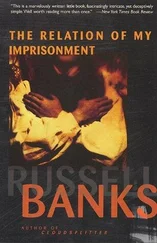“Right. Right.”
“But that doesn’t mean it’s easy, any of it. You’ve still got to face down that guilt every time some woman comes up to you wringing her hands in despair,” he went on. It’s hardest, he explained, when the woman is your mother, because if she practiced “smotherhood” on you while you were young and helpless and completely dependent on her for information about the world, then she’s going to have a strong hold on your guilt. She won’t be able to help it. “Smotherhood,” he said, glossing the term for me, is a self-defeating, usually unconscious way of deluding a son into thinking that all his guilt is directly related, as effect, to his mother’s pain and apparent powerlessness. And this delusion gets set into the son’s mind long before he can think for himself. So that later on, when he tries to respond rationally to the demands some woman’s pain is putting on him, if that woman happens to be his mother, he’s still got to deal with the old, deep-seated delusion that his only honorable response is the guilt-ridden one. In the particular case of Hamilton’s own mother, he felt that he had been put to the ultimate test. She had made it clear to him that the only way he could honor her conversion of generalized suffering into particularized forbearance was to kick her out of her own house. Which, after a lot of tugs in the opposite direction, he did. “It wasn’t easy,” he sighed. Then he waved to the waitress for another round.
“I bet it wasn’t,” I said admiringly. Perspiration was running off our faces. I unbuttoned my cuffs and rolled up my sleeves to the elbows, then loosened my collar and took off my necktie. I had long since removed my sport coat. Hamilton was wearing a clean white T-shirt and work pants — not that it matters, except peripherally with regard to what happened next.
The waitress, whose name was Linda, a cheerful type who seemed resigned to spending the rest of her life doing just what she was doing then, brought us another round, our third or fourth, I can’t recall, and slowly, her tray slapped her thigh, walked back to the bar and hitched herself up onto a stool and resumed staring at the front door. The bartender, whose name was Lee, a town “character” who played Rudoph the Red-nosed Reindeer every year in the Kiwanis Club’s Christmas Pageant, went on peering morosely into the hot empty space a few feet in front of him. He was obviously lost in thought, puzzling his way around a bit of supper caught behind a tooth, his mind a single, low-frequency hum of passive attention that, having fallen upon his tooth, seemed glued there. In the corners of the room, the two standing fans whirred uselessly away at the heated air as the screen door swung open and a woman walked in from the street, alone. The door banged behind her, and she looked around the room, smiled at Hamilton and me slightly, and walked directly to the bar, where she ordered a gin and tonic.
She was around forty, a good-looking woman, more handsome than pretty, wearing a sleeveless blouse that exposed her muscular arms and drew attention to the amplitude of her bosom. Her corn-blond hair, long and healthy-looking, was wound into a Teutonic bun behind her head. Her white Bermuda shorts were tight and made of such heavy cloth that they seemed to armor her lower body rather than merely to cover it. Though she had been in town, living in an apartment over Paige Realty, for no more than two weeks, certain things about here were already known by just about everyone else in town: She was the new school nurse, she was from Concord, the capital, where she had previously worked in an old-age home, she was unmarried, probably had never been married, she had a loud, commanding voice and a hearty laugh and she liked, on these hot evenings in July, to come out of her sweltering apartment around nine for a couple of gin and tonics and a little conversation with “the boys.” Her name was Jenny, and within two weeks she was Hamilton Stark’s third wife.
“Well,” I said to C., “that ought to make things more ‘significant.’” We were in my library on the ground floor. C. had finished his bath and dressed, and we had adjourned to the library where he could drink a little wine, an excellent California burgundy that C. had not yet tried, and warm ourselves by the fireplace. It was a chilly evening, not yet cold enough, of course, to turn the furnace on, but quite cold enough to welcome a room’s being heated by an open fire. C. was seated in his favorite armchair, resting from the exhilaration of his bath, as was his wont, and I had taken my accustomed place by the fireplace, standing with one elbow resting on the mantel.
C. was wheezing slightly. “Ah, yes. Yes, that’s fine, fine.” He uncrossed and recrossed his feet at the ankles on the ottoman. “Tell me, if you don’t mind giving things away, tell me,” he wheezed, “do you personally agree with Hamilton’s rationalization for his … behavior toward his mother in particular … and women in general? After all, it implies an attitude toward women that’s not exactly fashionable, you know.” He almost chuckled. “You may get yourself into deep trouble with your female readers, heh-heh.”
Letting himself sink back into the chair, he went on. “Two questions. Did you indeed have ‘trouble with women’ later on? And did the understanding of women that you gained, apparently through Hamilton Stark, help you out of your trouble? Obviously the two questions become one, and obviously, again, that single question is an attempt to determine if your novel can be used as a pragmatic guide. For we all, if we are men, have ‘trouble with women’ from time to time and wish, especially at such times, that we understood them better.” C. smiled benevolently and nipped off the end of his cigar with his front teeth. I don’t think the burgundy suited him.
“Yes, yes, of course. But that was just a personal aside there, that business about my intimations. It really refers to nothing that should concern my readers.* Probably, because it does intrude on the narrator’s locus of attention, and therefore the reader’s locus of attention as well, I’ll revise it out of the final version of my manuscript. I will say this much, however: If you want to use this novel as a guidebook, then you’ll have to accept Hamilton Stark as your guide. That’s the only rule for reading it, the only condition I’ll attach — except of course that you know the language well enough to recognize a persona when you hear one.”
“Ho, ho!” C. laughed.
I refilled his glass. That should quiet him, I thought. I had expected him to respond, not to my slip of a reference to my own, later, personal difficulties (which are well outside the scope of this book), but rather to the peculiar juxtaposition of Hamilton’s confession regarding his mother in particular and women in general, and the sudden appearance in the narrative of his third wife, Jenny, the nurse. After all, if it’s specifically the custodial compulsion of some women that you find most disturbing, one would expect you to be especially wary of women who are custodial by profession — nurses, house-keepers, babysitters, prison guards, and so on, professions that have no product as issue. It certainly surprised me — Hamilton’s speedy courtship and marriage to Jenny, I mean, and, that night at the Bonnie Aire, his quick switch from the painful (to him) description of his relationship with his mother to his moves on Jenny. For, no sooner had she sat down at the bar and ordered a gin and tonic than Hamilton arose from our booth and joined her at the bar. He opened his conversation with a discussion of the weather, the evening’s dominant fact, and moved quickly to questions about her — where she was from, her job, her impressions of the town and its people, what she did with her earnings — to a suggestion that they dance (Hamilton is well known as a dancer, an excellent dancer), whereupon he played “On the Road to Mandalay” by Frank Sinatra on the juke box in the corner, and the two of them danced, slowly at first, in the oppressive heat, then in large, graceful circles around the small room, between tables, from the door in front to the bar at the back. They played “Moonlight in Vermont” by Andy Williams, and danced again, serious-faced, athletic, the two of them, a pleasure to watch, certainly, but somehow embarrassing, for, in this heat in the all-but-deserted tavern, with their somber yet intent expressions, it was a rather intimate dance they were doing. Then they played the theme from the movie Picnic , and I think we all, the bartender, the idle waitress, and I, became extremely self-conscious and turned away from the dancers, the bartender to a chore in the kitchen in back, the waitress to painting her fingernails pink, and I to a copy of Peterson’s Field Guide to North American Birds that I happened to have in the pocket of my sports jacket, which I had removed some time earlier.
Читать дальше












